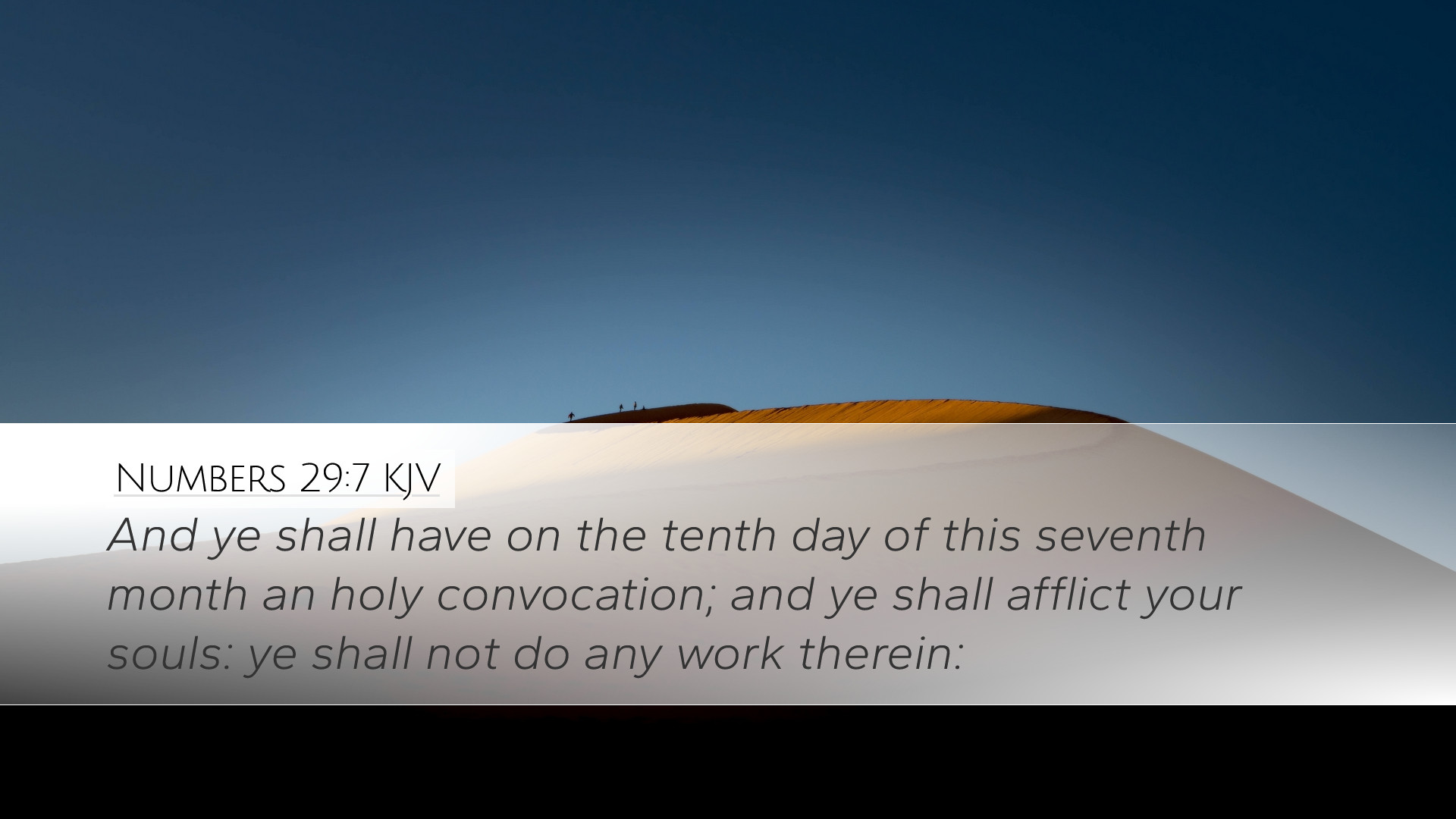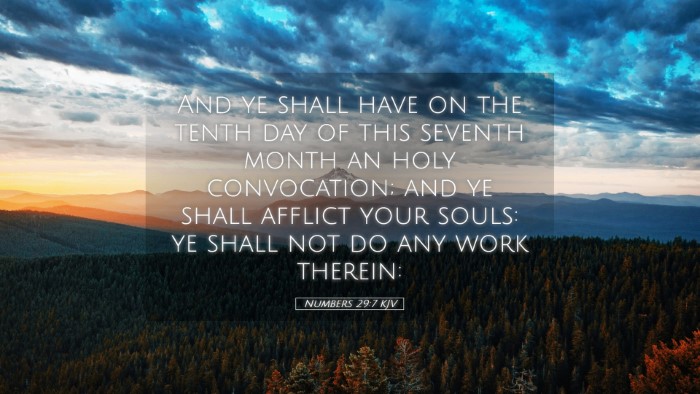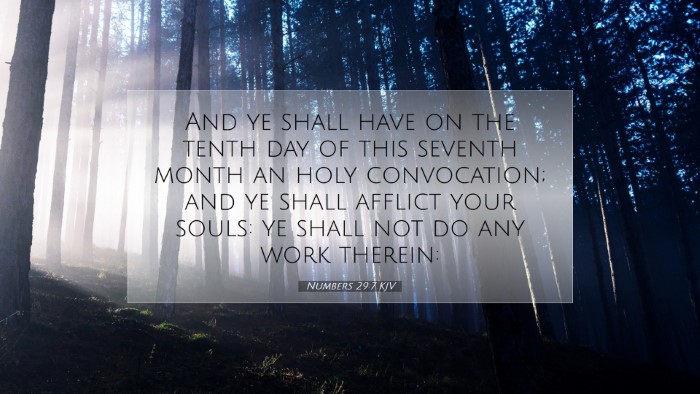Commentary on Numbers 29:7
Verse: “And ye shall have on the tenth day of this seventh month a holy convocation; and ye shall afflict your souls: ye shall not do any work therein.”
Introduction
The observation of this verse within its broader scriptural context reflects significant themes of festival observance, repentance, and divine consecration. The instruction recorded in Numbers 29:7 is not merely an isolated commandment but is rooted in the covenantal relationship between God and Israel, representing both liturgical significance and communal identity.
Historical Context
The events surrounding this verse take place during the wilderness wanderings of the Israelites. The Israelites are preparing to enter the Promised Land, and God, through Moses, reiterates the importance of conducting their life and worship according to His commandments. The tenth day of the seventh month is significant as it is the Day of Atonement, a sacred time intended for introspection and affliction of the soul.
Theological Significance
Many commentators recognize this day as pivotal within the Jewish liturgical calendar. The Day of Atonement (Yom Kippur) calls believers to serious reflection on their sins and their standing before God, emphasizing repentance and the need for atonement.
Affliction of Souls
Matthew Henry articulates that the “afflicting of souls” indicates a sincere inner mourning for sin. It involves implementing a spiritual discipline characterized by fasting and humility before God, embodying the biblical principle that contrition is requisite for restoration. The emphasis on communal participation suggests that this is not solely an individual act of penitence but a collective acknowledgment of sin and the need for divine mercy.
The Convocation
Albert Barnes observes that the “holy convocation” reflects a time set apart for the gathering of God's people, indicating that corporate worship is essential for fostering community identity and spiritual health. The command to refrain from work implies that such a time is for spiritual pursuits rather than secular activities, shifting focus to divine matters.
Lessons for Today
This passage imparts valuable lessons applicable to contemporary believers:
- The Importance of Reflection: Just as the Israelites were commanded to reflect on their actions, modern believers are encouraged to engage in regular self-examination and repentance.
- Community Worship: The great emphasis on communal gatherings underscores the importance of joining together in worship to foster unity, accountability, and mutual encouragement.
- Sacred Time: Modern Christians are also called to set apart days for worship and rest, which can rejuvenate faith and deepen one’s relationship with God.
Practical Applications
From this passage, pastors and church leaders can draw practical applications for their congregations:
- Organizing Times of Repentance: Encourage seasons of focused prayer and fasting that allow congregants to seek God’s face and embrace His forgiveness.
- Building a Culture of Worship: Create regular opportunities for community worship that draw members closer to God and to one another.
- Developing Discernment in Daily Life: Assist congregants in finding ways to balance secular responsibilities with sacred commitments, emphasizing the need to prioritize spiritual life.
Conclusion
In summary, Numbers 29:7 encapsulates the essence of atonement and divine remembrance within the covenant community. The call to afflict the soul, coupled with the holy convocation, reinforces the significance of humility, repentance, and collective worship in fostering a deeper relationship with God. As believers reflect on these timeless principles, they are invited to engage meaningfully with their faith, continuing the biblical rhythm of approach to God. The legacy of this verse challenges today’s followers to deepen their spiritual practices, encouraging a return to authenticity in worship and community life.


